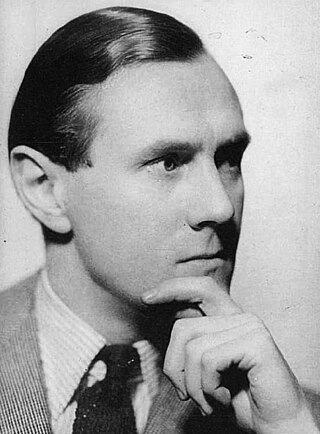
Patrick Victor Martindale White was a British-born Australian writer who published 12 novels, three short-story collections, and eight plays, from 1935 to 1987.
Dorothy Auchterlonie was an English-born Australian academic, literary critic and poet.

Alec Derwent Hope was an Australian poet and essayist known for his satirical slant. He was also a critic, teacher and academic. He was referred to in an American journal as "the 20th century's greatest 18th-century poet".

Isobel Marion Dorothea Mackellar, was an Australian poet and fiction writer. Her poem My Country is widely known in Australia, especially its second stanza, which begins: "I love a sunburnt country/A land of sweeping plains,/Of ragged mountain ranges,/Of droughts and flooding rains."

June Mary Bronhill, also known as June Gough, was an Australian coloratura soprano opera singer, performer and actress,
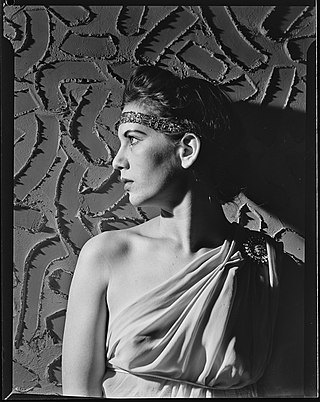
Charmian Clift was an Australian writer and essayist. She was the second wife and literary collaborator of George Johnston.

Caroline Louisa Waring Calvert was an early Australian writer, botanist and illustrator. While she was well known for her fiction during her lifetime, her long-term significance rests on her botanical work. She is regarded as a ground-breaker for Australian women in journalism and natural science, and is significant in her time for her sympathetic references to Aboriginal Australians in her writings and her encouragement of conservation.
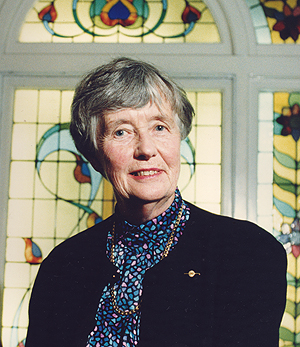
Dame Leonie Judith Kramer, was an Australian academic, educator and professor. She is notable as the first female professor of English in Australia, first woman to chair the Australian Broadcasting Corporation and the first female chancellor of the University of Sydney. She was made a Dame Commander of the Order of the British Empire and a Companion of the Order of Australia.
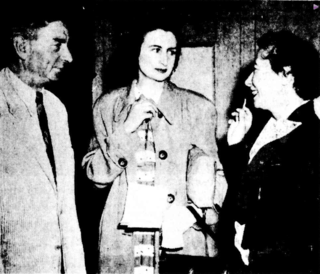
Rosemary de Brissac Dobson, AO was an Australian poet, who was also an illustrator, editor and anthologist. She published fourteen volumes of poetry, was published in almost every annual volume of Australian Poetry and has been translated into French and other languages.
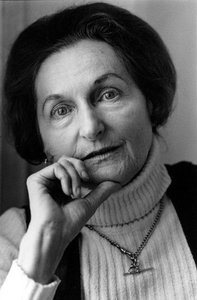
Jessica Margaret Anderson was an Australian novelist and short story writer. Born in Gayndah, Anderson lived the bulk of her life in Sydney apart from a few years in London. She began her career writing short stories for newspapers and drama scripts for radio, especially adaptations of well-known novels. Embarking on her career as a novelist relatively late in life - her first novel was published when she was 47 - her early novels attracted little attention. She rose to prominence upon the publication of her fourth novel, Tirra Lirra by the River, published in 1978. Although she remains best known for this work, several of her novels have garnered high acclaim, most notably The Impersonators (1980) and Stories from the Warm Zone and Sydney Stories (1987), both of which have won awards. She won the Miles Franklin Literary Award twice, and has been published in Britain and the United States. Jessica Anderson died at Elizabeth Bay, New South Wales in 2010, following a stroke. She was the mother of Australian screenwriter Laura Jones, her only child.

The Impersonators (1980) is a Miles Franklin Award-winning novel by Australian author Jessica Anderson. It was published in the United States under the alternative title The Only Daughter.
Jean Bedford is an English-born Australian writer who is best known for her crime fiction, but who has also written novels and short stories, as well as nonfiction. She is also an editor and journalist, and has taught creative writing in several universities for over 20 years.

Vice Admiral Sir Henry Mackay Burrell, was a senior commander in the Royal Australian Navy (RAN). He served as Chief of the Naval Staff (CNS) from 1959 to 1962. Born in the Blue Mountains, Burrell entered the Royal Australian Naval College in 1918 as a 13-year-old cadet. His first posting at sea was aboard the cruiser HMAS Sydney. During the 1920s and 1930s, Burrell served for several years on exchange with the Royal Navy, specialising as a navigator. During World War II, he filled a key liaison post with the US Navy, and later saw action as commander of the destroyer HMAS Norman, earning a mention in despatches.

John Foulcher is an Australian poet and teacher.

Dora Birtles, was an Australian novelist, short-story writer, poet and travel writer.

The Beauties and Furies (1936) is a novel by Australian writer Christina Stead.
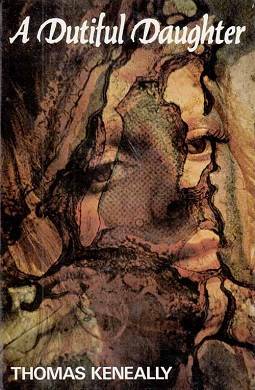
A Dutiful Daughter (1971) is a novel by Australian writer Thomas Keneally.
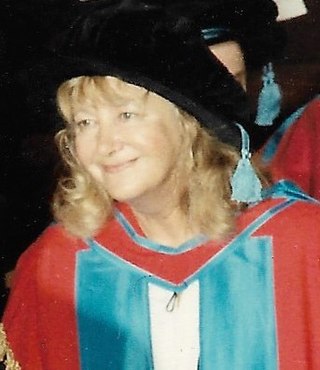
Sylvia Kantaris was a British poet, based for much of her life in Cornwall, who published eight collections of poetry, of which two were in collaboration. Her work was widely anthologized and translated into various languages, including Italian, Japanese and Finnish.
Gwen Kelly was an award-winning Australian novelist, short story writer and poet, whose fourth novel, Always Afternoon, was made into a television mini-series in 1988. She was considered by some to be one of the "major Australian writers", whose novels are "an intimate chronicling of women's lives and of our yesterdays", "probing stereotypical Australian attitudes and behaviour".
Beverley Kingston is an Australian historian. She is author of volume 3 of the Oxford History of Australia.
















